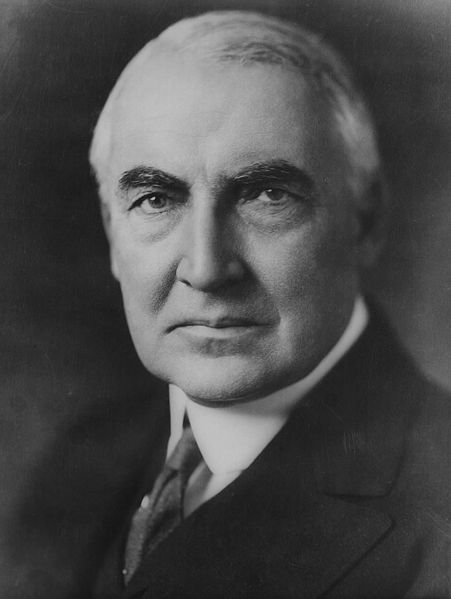The Politics of Boom Time
During the 1920s, three Republican presidents guided the country through the economic boom to the eventual economic bust. Wilson’s vision of a the United States as part of a League of Nations was put to rest when Warren G. Harding took office in 1921. Americans had had enough of war, and Harding’s foreign policy of isolationism suited Americans well. He avoided political and economic alliances with other countries to avoid being pulled into wars. In order to reduce competition with foreign goods, he supported the Fordney-McCumber Tariff which raised the tax rate on many imports.
 President Warren G. Harding |
Harding also supported quotas on the number of immigrants from foreign countries to stem the tide of migration to the United States after World War I. Harding died in 1923 amidst a scandal known as the Teapot Dome Scandal. Harding had put many of his friends in government positions and they had taken bribes or stolen government resources. When his Interior Secretary had given drilling rights, on land in Teapot Dome, Wyoming, to private companies for money, Harding was caught in the middle. Though Harding was never accused of wrongdoing, he was considered guilty by association in many circles. |